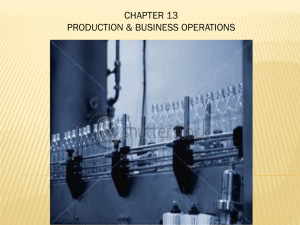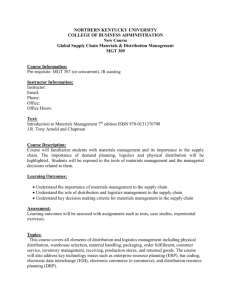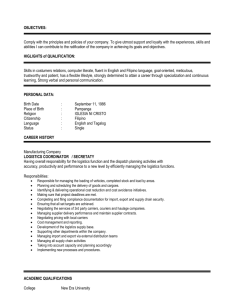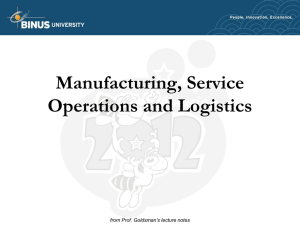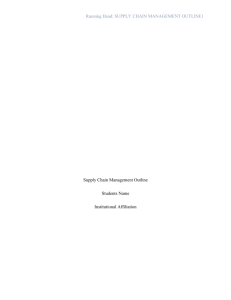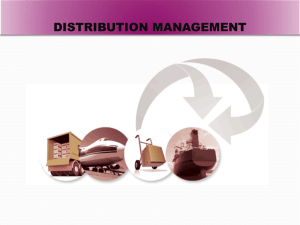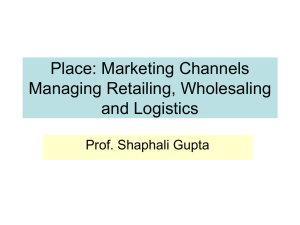Chapter 13 Review - Campbell County Schools
advertisement
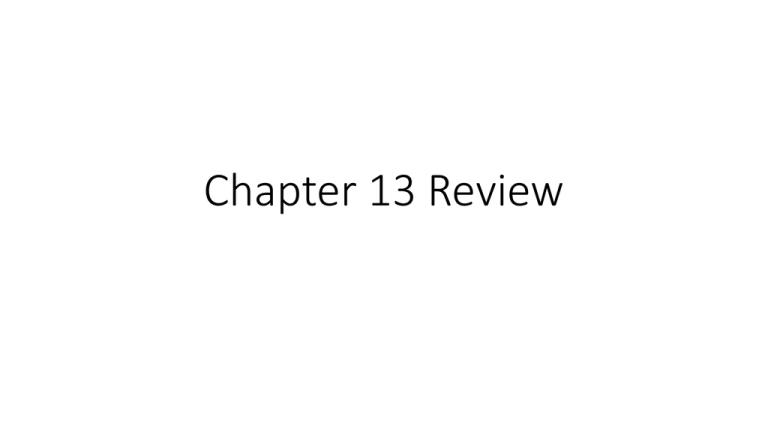
Chapter 13 Review True or False • Standards are steps to be followed for performing a particular work activity. • False MC • An information manager is MOST likely to • (a) provide safety training for employees • (b) control a company’s energy costs • (c) develop inventory procedures for a company’s • finished products • (d) maintain a company’s voice mail system. •D True or False • A business that offers products that meet customer needs at competitive prices cannot fail. • False MC • Raw materials supplied by nature are called • (a) natural resources • (b) processed goods • (c) human resources • (d) agricultural products. •A True or False • Businesses must develop new products to keep up with competition and changing customer needs. • True MC • Matt is trying to determine if the building his company currently uses is large enough or if an expansion is necessary. Which business operation is Matt involved in? • (a) facilities management • (b) logistics • (c) scheduling • (d) safety and security. •A True or False • The economy begins with retailing. • False True or False • An operational plan identifies how work will be done, who will do it, and what will occur. • True MC • The forms of production are extraction, processing, manufacturing, and • (a) retailing • (b) wholesaling • (c) cultivation • (d) distribution. •C True or False • Mass production usually requires a smaller work area than custom production. • False MC • Inventory is a detailed account of all of the following EXCEPT a company’s • (a) employees • (b) materials • (c) supplies • (d) finished products. •A True or False • Manufacturing involves changing and improving the form of another product. • False MC • The just-in-time process is which type of business operation? • (a) facilities management • (b) logistics • (c) scheduling • (d) safety and security. •B True or False • The best practices among all competitors are called benchmarks. • True MC • This type of operations software monitors and often controls machines, checks for errors and defects, and reports on production levels. • (a) scheduling • (b) groupware • (c) supply chain • management • (d) manufacturing automation. •D True or False • Custom manufacturers work closely with individual customers. • True MC • The activities, equipment, and resources needed to manufacture a product are part of the • (a) pure research • (b) product design • (c) production process • (d) applied research. •C True or False • Logistics personnel are responsible for locating and purchasing supplies. • True MC • Which of the following is MOST likely to be manufactured by an intermittent processing procedure? • (a) a bridge • (b) a set of wedding invitations • (c) an automobile • (d) gasoline. •B MC • After a manufacturer establishes quality performance standards, the next step in the CPI process is to • (a) identify process activities • (b) monitor performance • (c) shut down production until the standards are implemented • (d) select measurement tools. •D Part 4 – Short Answer • Provide two examples for each of the three categories of products. For each example, identify one consumer use and one business us of the product. 1. Natural resources – coal, iron, water • Consumer use – heating • Business use – light 2. Agricultural – corn, wheat • Personal use – food • Business use – create processed goods 3. Processed goods - flour, cars, paper, appliances • Dishwasher • Packaging Part 4 – Short Answer • What are the major differences between a processing business and a manufacturing business? • Processing – changes and improves an existing product • Manufacturing – combines and uses raw materials to make or create a product Part 4 Short Answer • Why should business partners and customers be involved in a continuous improvement process? • To help identify problems and make the quality of a product better. DEFINE: • producers • manufacturers • applied research • scheduling • facilities management • farmers • extractors • logistics • safety and security • pure research
